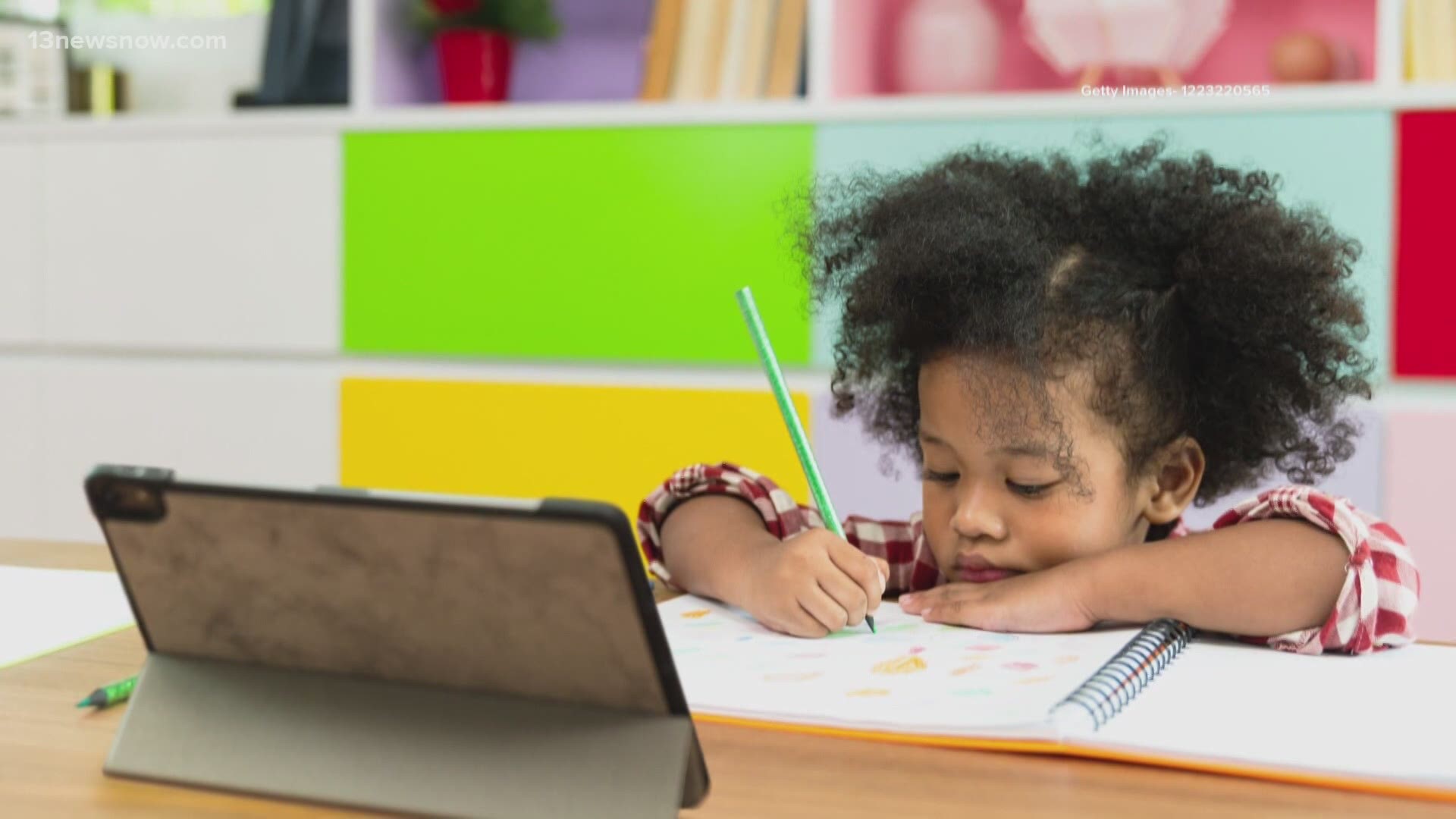VIRGINIA BEACH, Va. — It's been almost a year since schools in Virginia made the switch to virtual learning because of the COVID-19 pandemic. The change hasn't been easy for everyone.
"We do have some information that we are looking at and some of it is very concerning, particularly when we look at our youngest learners," said Charles Pyle, who is the Director of Media Relations with the Virginia Department of Education
His concern stems from early data from the department showing academic struggles in the state as schools moved to virtual learning.
"Nothing can replace a professional teacher. They are trained to know body language. In the classroom, I can understand the expression of students who don't get it," said Regent University Dean of Education Kurt Kreassig, who is not surprised by the data.
The numbers indicate that failing classes is the greatest challenge with remote learning.
"You can't replace the nuances of a face-to-face environment," Kreassig said, citing the advantages of observing students in person.
But Kipp Rogers, the Chief Academic Officer for Virginia Beach City Public Schools, said he saw school systems trending in this direction before the shutdowns even began.
"I still think it's too early to tell. We're not where we would like to be, but we saw similar patterns pre-COVID," he said. "There is correlation but not necessarily causation. There are so many factors that come into play with or without COVID."
Rogers said this includes data regarding a widening academic gap for students of color.
"I don't think it's novel that there are differences in performance for students of color... COVID has simply brought that more attention," he said, again noting the pre-existing gaps.
Kreassig and Rogers point to strong teachers as the key to overcoming whatever circumstances are driving the concerning numbers.
"Good teaching and deep learning are never lost. When you have a good, solid teacher, you don't forget that. You hold on to that," Rogers said.
The study indicates that literacy at the Kindergarten through 2nd-grade level may have suffered from the move to virtual, while there aren't as many effects on kids 3rd through 8th grade. Math has seen scores decline across age groups, with the exception of 8th graders, whose scores have actually improved.

